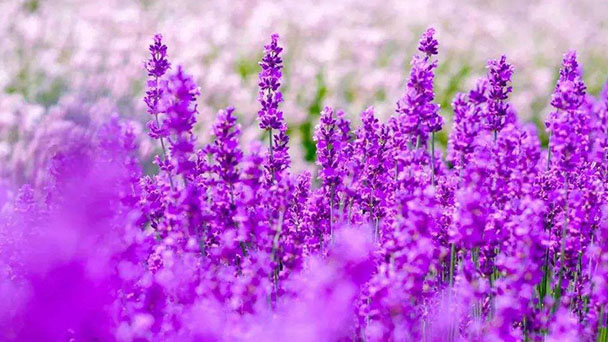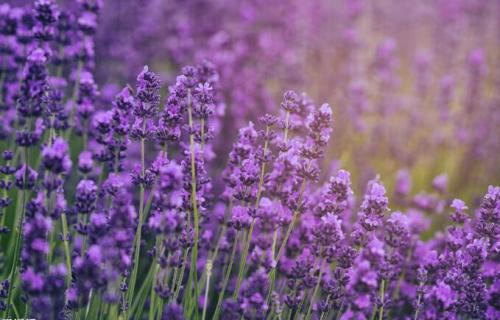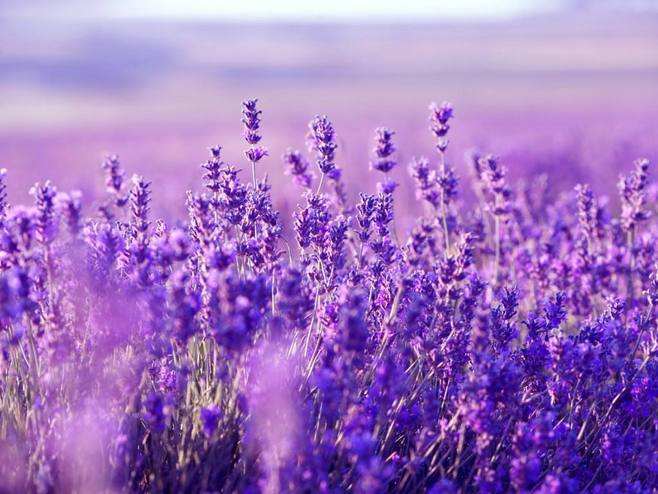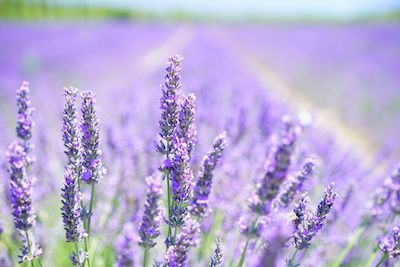How to grow Lavandula in autumn
Written by Maggie
Nov 23 2020

During the Lavandula growth in the autumn, give enough light to help the branches to differentiate and water them every three to five days. Do not fertilize the soil when the base fertilizer is sufficient, and apply phosphate potassium compound fertilizer every 15 ~ 20 days when fertilizer is insufficient. Apply organic fertilizer in October, at ordinary times besides the clip when flowering. In autumn, it also needs a proper clip.
Lavandula picture

1. Plenty of light for Lavandula
The sun isn't as strong in autumn as it is in summer, so the Lavandula can be placed in direct sunlight to photosynthesize its branches. More beautiful flowers will bloom during the blooming season. Do not put in the shade for maintenance, otherwise it will affect the normal growth of lavender, reducing its ornamental value.
2. Water appropriately for Lavandula
Lavandula is drought tolerant but afraid of floods. In the fall, keep the water under control and don't overwater. Generally every 3 ~ 5 days in autumn can be watered, so that to keep the soil a little moist. Water to the plant can be timely. On cloudy and rainy days or gradually turning cool, we can gradually reduce the amount of watering.

3. Provide fertilizer for Lavandula
As for how Lavandula is raised in the fall, lavender needs to be fertilized in time for the fall, even though its nutrient requirements are not high. Do not fertilize the soil when there is sufficient base fertilizer. Nutrient deficiency should be in July to September, every 15 to 20 days to apply a phosphorus potassium compound fertilizer. In October, apply a good organic fertilizer.
4. Trim appropriately for Lavandula
Lavandula generally consumes a lot of nutrients in the soil in the summer and fall, so in addition to flowering, it needs to be trimmed in the fall. Cut off the diseased branches and old branches can reduce the digestion of soil nutrients and promote the lavender to continue to open beautiful flowers in the coming year.

Latest Updated
- Benefits of Bugleweed - 7 Science-backed Health Benefits
- Bugleweed Dangers & Side Effects - Is It Poisonous?
- How to Plant Evergreen Trees - What You Should Know
- When to Plant Evergreens - Grow Guide for Evergreen Trees
- 12 Wonderful Evergreen Shrubs for Your Garden
- 12 Popular Evergreen Plants with Pictures for Beginners
- When And How To Prune A Lilac Bush Like a Pro
- How to Grow & Care for Lilac Vine (Hardenbergia Violacea)
- Japanese Lilac Tree (Syringa Reticulata) Care & Propagation Guide
- Shumard Oak Pros and Cons - What to Know
Popular Articles
- Winter maintenance of Antirrhinum Majus
- How to Grow Terminalia Mantaly Tree
- How to Grow and Care for Crossostephium Chinense
- How to grow Antirrhinum Majus in spring
- Peristeria Elata (Dove Orchid) Profile: Info & Care Guide
- Underwatered Snake Plant (Sansevieria Trifasciata) - Signs And How To Fix
- How to Care for Brazilian Jasmine Plant (Mandevilla Sanderi)
- How to Grow & Care for Graptopetalum Purple Delight in Summer
- Rosa Chinensis (China Rose): Plant Growing & Care Tips
- How to Care for Baby Sun Rose (Aptenia Cordifolia)